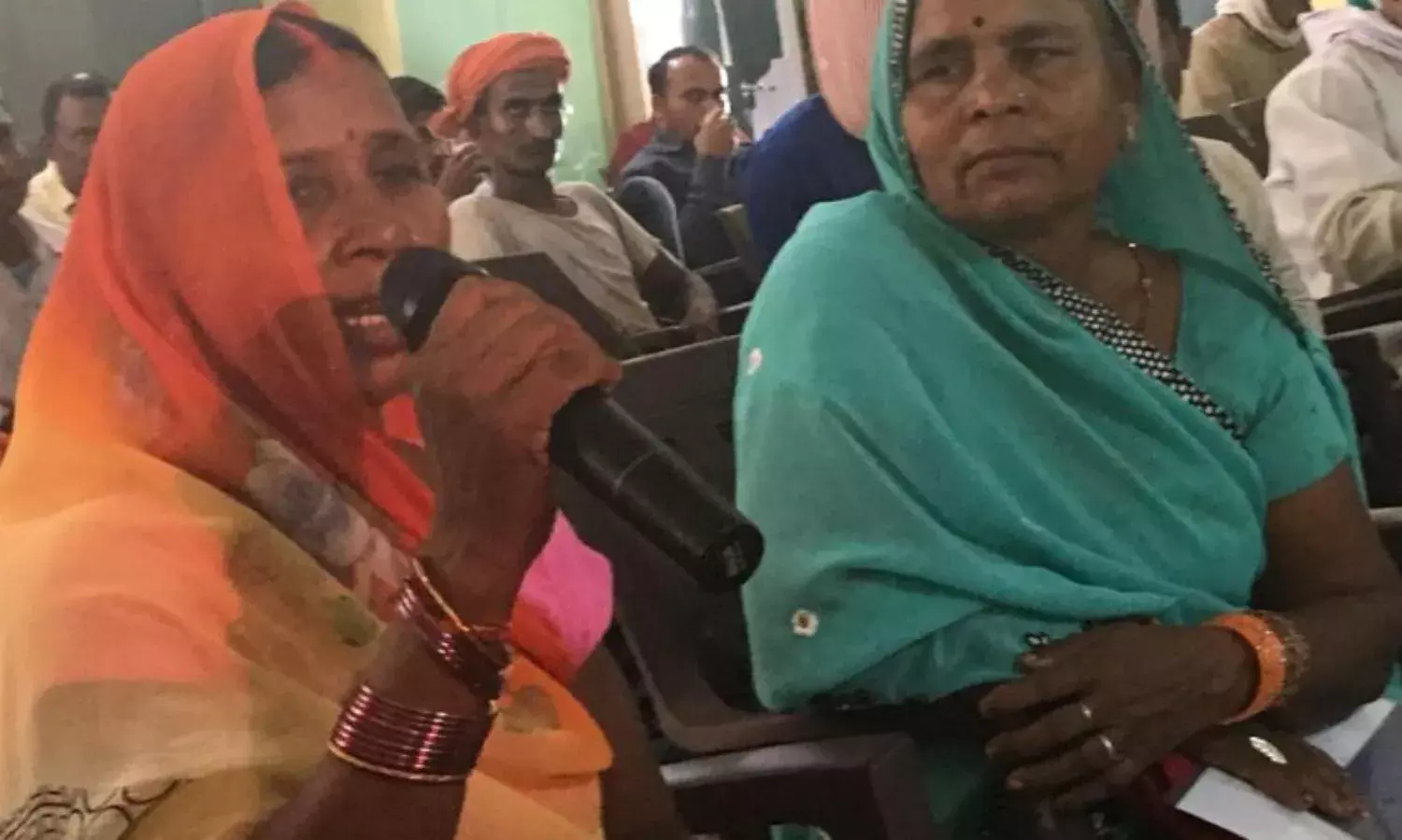The 3 Amazing Women of Manda
Gram pradhans who have made a difference

The other day I shared tea and samosas with three magnificent women. I met Kunti, Ram Kali and Sukhraji Devi all of them gram pradhans, the elected head of their respective villages in Manda, Allahabad, Uttar Pradesh.
They had traveled from the village to Manda for an interface meeting between elected representatives and government officials. The idea was to brainstorm challenges faced by people in the countryside on health and nutrition issues.
The three women belonging to the tribal Kol community were elected as village head three years ago for a five-year term. Since then, they are proud to have installed toilets in the home of villagers, and a working water pump in villages.
‘We have got roads built and worked on improving the quality of existing roads that connect our villages better to the city now,’ says Kunti.
However for Sukhraji Devi the improved relationship between female gram pradhan and ASHA is her greatest achievement. The Accredited Social Health Activist (ASHA) is a trained female community health activist appointed by the government from the village itself. In the past a lack of rapport between mostly male gram pradhan and ASHA had affected the health and nutrition need of villagers.
The Village Health Sanitation and Nutrition Committee (VHSNC) is a major initiative under the government’s National Rural Health Mission (NRHM) at a time when more than half the country’s population continues to lack access to adequate sanitation. This is despite the fact that water and improved sanitation and hygiene can prevent disease, and deaths in a country where nearly 70 percent of the population still resides in rural areas.
The ASHA is selected from the village itself and trained to work as an interface between the community and the public health system. However being a woman between the age group of 25 years and 45 years is sometimes a disadvantage in a society riddled with caste and class considerations.
The clash over various issues between citizens of the same village prevent those in need from getting prompt health and nutrition services. This also makes it difficult for different institutions like Block and District level officials, village health officials and Gram Sabha representatives to coordinate their services for the good of the community.
It is in fact impossible for any ASHA to function without adequate institutional support. And when the village head is a male with a patriarchal mindset then it is most difficult for anyone to get any work done, especially in areas that need help the most.
The Kols around the Allahabad area are tribal people who are expert agriculturalists.
Kunti said that the Kols inhabit large tracts of land in the districts of Allahabad. They are a proud people with a long, though unrecorded history of living in harmony and communion with nature and the environment. Ages ago fallow land was ploughed and converted by the Kols into lush fields. However over time the traditional lifestyle of the Kols has suffered assault.
Their cultural identity has been watered down and they have been deprived of land that they have traditionally tilled. That is why like other ethnic communities the tribal population of Kols too is reduced to becoming the weakest section of society. Displaced from the good earth, many male members of this tribal community are forced to give up farming and earn a living at brick kilns where they work in terrible conditions. The rate of literacy within the community is low and health care is almost nonexistence.
Now civil society organizations like Global Health Strategies (GHS) work hand in hand with government officials and elected representatives now in hope that one day this socially excluded and hard to reach community is able to take care of its problems.
At the interface meeting organized recently in Manda, demands were made for male condoms, to more open communication with the elected representatives in the state and national parliament, and the prompt solution to problems faced by people in villages.
Anuj Ghosh, a director with GHS and expert on health and nutrition advocacy projects in Uttar Pradesh gave several reasons for intervening in particular areas on the outskirts of Allahabad.
‘We chose to work around the Manda area as the people here were welcoming even though this is a socially excluded and a hard to reach community. We found that people here lack proper infrastructure and work around public health here is minimal’.
Deepak Mishra, a senior associate also at GHS has years of experience on nutrition and the reproductive, maternal, newborn, child and adolescent health (RMNCH+A) and nutrition launched by the government in 2013. Deepak speaks the same dialect as the rural folk in this area and apart from planning and implementing public health schemes he enjoys the trust of people in rural areas.
Whenever questions asked of the three female village heads were not understood Mishra, a graduate in Social Work from Allahabad University intervened to translate the conversation into the local dialect.
Ram Kali like Kunti did not receive formal education. Sukhraji Devi is illiterate too but she has learnt to sign her name at least. All the three women said that they would not be able to function as village head without help and moral support from their respective husbands. For that reason the female heads are often teased for being only a proxy for a husband who is nicknamed pradhan pati, or real power behind the female village head.
But this does not bother these women who are happy to accept help from anyone ready to make a change in the life of all villagers. This could be a husband, a government official or a well-meaning member of civil society.



